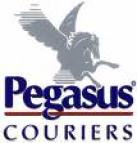My fellow SLA Europe colleague Woodsiegirl has created the Library Routes Project, a wiki set up in October 2009.
The idea is to document how people got into the profession, and the career path which has taken them to their present role.
 I have been meaning to add my ‘story’ for some time, as I have always been fascinated by how people end up in this unusual profession. I went from being a motorcycle messenger with Pegasus Couriers, hurtling around the wintry streets of Thatcher’s London to become a cataloguer grappling with the delights of the Dewey Decimal Classification and AACR2 (Anglo American Cataloguing Rules mark 2)
I have been meaning to add my ‘story’ for some time, as I have always been fascinated by how people end up in this unusual profession. I went from being a motorcycle messenger with Pegasus Couriers, hurtling around the wintry streets of Thatcher’s London to become a cataloguer grappling with the delights of the Dewey Decimal Classification and AACR2 (Anglo American Cataloguing Rules mark 2)
My story begins a few years earlier. I left University in 1984 with a degree in Geography and Computer Science (the kind of thing possible then at Keele University). The logical thing to do at that time would to have become a computer programmer or something similar. However, during my last year at Keele I had something of a Damascene conversion whilst sitting in the Computer Lab one sunny Sunday afternoon. I looked around the computing lab and realised that with the exception of one other equally laggard student, I was the only there who had not completed the assignment due in on Monday morning. Some had completed it weeks ago. The shocking truth was that they preferred being in the lab with their computer terminals to frolicking out in the sun with their fellow students. I suddenly realised that I preferred being and working with people rather than cold inhuman computer technology.
This new found realisation left me at something of a loss as to a career path post University. However one faint possibility did occur to me at that key point. During my four year degree course (this was back in the halcyon days of full grants), there were just two options for paid work at Keele. The first was behind the student union bar fending off drunken scholars five deep demanding Pernod or Newcastle Brown Ale. The second was to work as an evening assistant in the Library. Both jobs paid the same, but the second involved working with attractive young library assistants who were local girls (surprise surprise there weren’t any young men at that time). The choice seemed obvious to me, and I greatly enjoyed spending time with these exotic creatures (you have to realise that after being surrounded by 4,000 students for weeks on end, spending time with a ‘real’ Potteries local was very appealing). As you can probably tell the spirit of Melville Dewey (or S R Ranganathan come that) did not enter me during this period.
I spent my first post University year working intermittently as a loft insulator – the period of my live I was at my fittest and most agile. The job involved heaving bales of fibre-glass through narrow loft hatches and avoiding putting my foot through delicate plaster ceiling panels. I then moved to London with my girlfriend and needed to find work quickly. I turned to my ‘trusty steed’, and became a motorcycle messenger. After a couple of months of risking my life in the cut and thrust of London streets helping to oil the wheels of the Thatcher boom economy, I decided this was not a good long-term career choice. So I wrote to thirty university and college libraries to see if they had any vacancies. I received two replies inviting me to interviews, and ended up on a six month contract at South Bank Polytechnic (as it was then known).
Within a few days of starting as cataloguer I began to think that this career could be the one for me. Having had 25 years to consider why this might the be case, I have decided on a combination of reasons. Firstly I had never been able to find one subject I could settle on to the exclusion of all others (the archetypal jack of all trades and master of none). At the same time I found I was interested in almost all subjects and had a desire to dig deeper to find out more about them.
At the end of my six month contract I was fortunate enough to be taken on as a Graduate Trainee, which allowed me to learn about a range of library jobs within the Polytechnic. Nothing I experienced during that year dented my enthusiasm for the profession, so I found a place at North London Polytechnic (as it was then called) and spent a year learning about the theory. This was actually the hardest part of my life in Libraryland, as I found the theory dry and boring. Many students actually gave up during the year, but my knowledge of how enjoyable of the actual work was drove me on and got me through.
This story is turning into something of an epic, so I am going to break it into two parts with the second exciting ![]() instalment to follow in a later post.
instalment to follow in a later post.



 In a year that has seen cuts in commercial library and and information services resulting from the UK recession, and the sad demise of the City Information Group in the summer (
In a year that has seen cuts in commercial library and and information services resulting from the UK recession, and the sad demise of the City Information Group in the summer (

